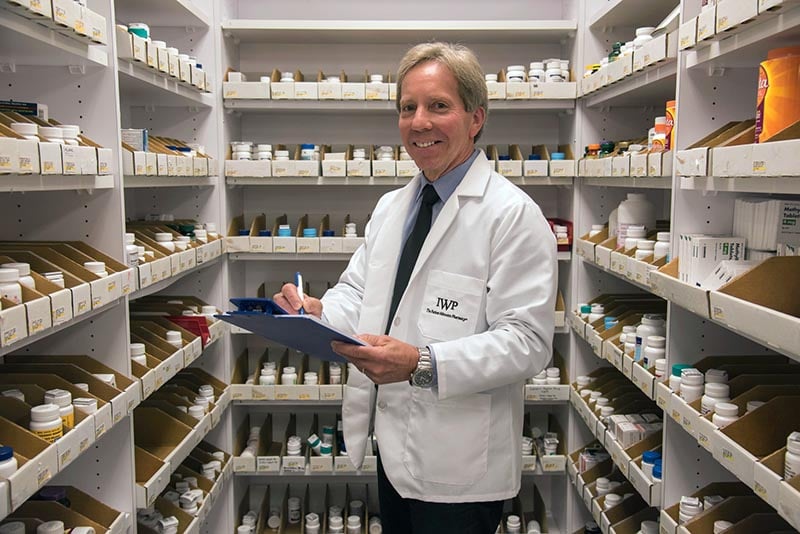5 Differences Between IWP vs. Retail Pharmacy in Workers' Compensation

Getting injured on the job can be a frightening experience. Ninety percent of job-related injuries are first time occurrences, which means injured workers most likely have little to no knowledge of the workers’ compensation system.
Research shows that people who are treated within the workers’ compensation system tend to fare worse than those who receive care for similar injuries in other medical systems. But why is that? We took a deep dive into what truly differentiates IWP as a specialized workers’ compensation pharmacy and how we help achieve superior results.
IWP Pharmacist, Frank Pallaria, has been in the pharmacy industry since 1982 and spent 25 years in a retail pharmacy setting before joining IWP in 2007. His experience assisting patients with their workers’ compensation medications in both retail and with IWP allowed Frank to provide some excellent insight on what truly makes IWP THE Patient Advocate Pharmacy.
1: Better patient outcomes.
At IWP, our goal is to make the prescription process smooth for the injured worker. Our Pharmacists offer private, confidential consultations to each patient so that they feel comfortable with their treatment plan.
When discussing this with Frank, he exemplified the importance of personalized care during a recent patient phone call which lasted 23 minutes. “At a retail pharmacy, you can’t even talk for 23 seconds,” he explains. Our patients feel comfortable contacting our pharmacists to discuss medications and address potential side effects, but more importantly, our pharmacists lend a listening ear to patients in need.
2: Time.
In retail, Frank described how, although he was a pharmacist, he was also customer care, enrollment, reimbursement, and pharmacy. At IWP, he can concentrate on his specialty – pharmacy.
At IWP, Frank now has the time to check the PDMP, conduct research, and verify prescriptions. In retail, there is no time. “Workers’ Comp is a special population. There is a lot of anxiety and confusion involved. 80% of injured workers have two doctors, so it’s imperative that we review the PDMP”. IWP averages 2,300 workers’ compensation prescriptions a day, whereas retail averages 3-4.
3: Thoroughness
Our pharmacists go above and beyond to prevent medication-related problems with our Four-Point Quality Check. This process checks each prescription four times before it is shipped. From running reports to identify potential drug-on-drug interactions to implementing a morphine equivalency program to help taper patients off of opioids, our pharmacists work tirelessly to balance patient’s medication needs and ensure the right medication goes to the right patient for the right injury.
4: Alleviate Anxiety Amongst Patients.
In Franks experience, approximately 30-40% of all workers’ compensation prescriptions get rejected and a prior authorization is required. Unlike a retail pharmacy, IWP removes the burden of denied prescriptions. We work with the insurance carrier through disputes and denials, while simultaneously providing the patient with their medications, delivered directly to their doorstep with little to no out of pocket cost.
5: Remove the Hassles from Doctors.
The entire process at IWP is streamlined. Our pharmacy staff works closely with the patient’s treatment to reduce the administrative work of coordinating care and payment with insurance carriers. Our dedicated account team helps manage the claims process and monitors prescription shipments, referrals and overall status of each claim.
At IWP, we understand the workers’ compensation landscape is difficult to navigate. We work directly with the patient, their treatment team and attorneys to help facilitate a speedy recovery – while providing peace of mind throughout their recovery.
Other Posts You Might Be Interested In
Subscribe to email updates
Stay up-to-date on what's happening at this blog and get additional content about the benefits of subscribing.


